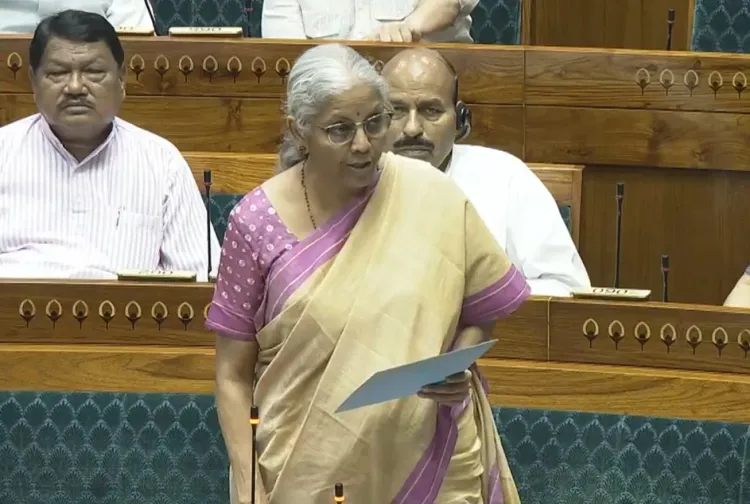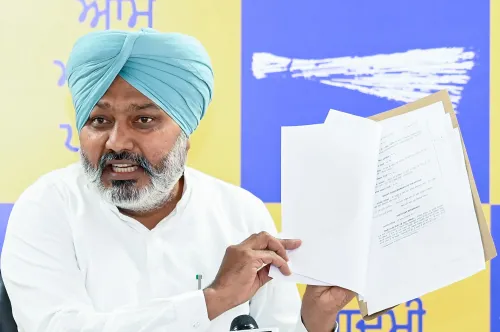Is the Revised Income Tax Bill by FM Sitharaman the Answer to Fairness and Clarity?

Synopsis
Key Takeaways
- The revised Income Tax Bill aims to enhance fairness and clarity.
- It incorporates 285 suggestions from the Parliamentary Select Committee.
- The Bill seeks to simplify tax processes significantly.
- Changes in tax slabs will benefit the middle class.
- The previous Bill was withdrawn to eliminate confusion.
New Delhi, Aug 11 (NationPress) On Monday, Union Finance Minister Nirmala Sitharaman presented a new version of the Income Tax Bill, 2025 in the Lok Sabha, reflecting the majority of suggestions from the Parliamentary Select Committee led by BJP member Baijayant Panda, despite a ruckus from the Opposition.
While introducing the bill, FM Sitharaman emphasized that the modifications were essential for conveying the precise legislative intent.
She remarked, "Corrections include drafting nuances, phrase alignments, consequential adjustments, and cross-references," also noting that the previous bill was withdrawn to eliminate potential confusion.
The revised legislation aims to enhance fairness and clarity, ensuring alignment with current legal provisions.
This new draft seeks to provide lawmakers with a consolidated, updated version embodying all proposed revisions.
The updated Income Tax Bill 2025 now includes 285 suggestions from the Parliamentary Select Committee, aiming to streamline tax processes and rectify prior issues, potentially transforming the income tax framework in the nation.
Previously, the Income Tax Bill, 2025, which was initially introduced in the Lok Sabha on February 13 to supersede the existing Income Tax Act of 1961, was officially retracted by the government.
According to Panda, the chair of the reviewing committee, once enacted, the new law will simplify India’s long-standing tax structure, reduce legal uncertainties, and assist individual taxpayers and MSMEs in evading unnecessary litigation.
The current Income Tax Act of 1961 has experienced over 4,000 amendments and comprises more than 500,000 words, rendering it excessively complicated. The proposed bill aims to simplify this by nearly 50%, making it significantly more accessible for ordinary taxpayers, as noted by Panda. The parliamentary committee had identified numerous drafting errors and proposed amendments to mitigate ambiguity.
The revised Bill modifies tax slabs and rates universally to benefit all taxpayers, substantially lowering the tax burden for the middle class and allowing them to retain more income, thereby enhancing household consumption, savings, and investments, as per government statements.








